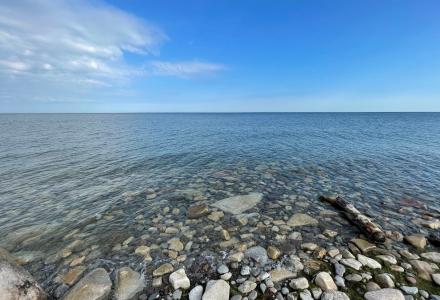
Invasive species can out-compete native species and turn ecosystems upside down. Remember the zebra mussel, and its cousin, the quagga mussel?
But it’s been a long time since a new invader was discovered in the Great Lakes.
The zebra and quagga mollusks were first sighted in the lakes in the late 1980s, likely introduced via the ballast water of ocean-going ships.
More recently, findings published in the Journal of Great Lakes Research have made the news. The summary: Recent regulations have apparently reduced the threat of invaders entering the lakes via the ballast water discharge from ocean-going vessels. No new species have been recorded since 2006.

Credit: Nisaw.org
This is good news, of course. It’s not the end of the problem, however. There are still threats, including the live trade of aquarium pets and a warming climate that will make the lakes more hospitable to some non-native species.
National Invasive Species Awareness Week is Feb. 22-28 in the U.S. As the name suggests, the week is about raising awareness and identifying “solutions to invasive species issues at local, state, tribal, regional and national scales.”
Partners include the U.S. Department of Agriculture and U.S. Fish and Wildlife Service, and events are being held across the U.S.
In Canada, there’s also an ongoing Invading Species Awareness Program managed by the province of Ontario. British Columbia has an invasive species week in June.
Successes since the Ontario program began in 1992 include volunteer monitoring of hundreds of water bodies a year, and early detection of new invasions through citizen reports to an Invading Species Hotline and Invasives Tracking System within North America, the Great Lakes and Ontario's inland waters.
For the IJC, the threat of invasive species remains a priority, including work to prevent Asian carp from entering the lakes via pathways like the Chicago Sanitary and Ship Canal to Lake Michigan. The IJC has supported efforts to fund and improve an electric carp barrier on the canal, and proposals for the ecological separation of the Great Lakes and Mississippi River.

Zebra mussels from the Detroit River. Credit: Center for Great Lakes and Aquatic Sciences
Most recently, the IJC recommended a Water Quality Plan of Study for the Lake of the Woods basin to the Canadian and U.S. governments.
Over the last 30 years, that basin has been invaded by many non-native species, including the zebra mussel, hybrid cattail, spiny waterflea, rusty crayfish and rainbow smelt.
These species, as we’ve already seen in the Great Lakes, have the potential to permanently alter aquatic ecosystems, leading to the loss of native species, reductions in game fish populations and costly damage to water infrastructure. The Plan of Study recommends seven projects that will strengthen ongoing prevention efforts and pursue control efforts in already infested waters.
So the answer is yes, we should celebrate National Invasive Species Awareness Week as another way to keep a focus on existing and potentially new invasive species that threaten the Great Lakes and other regions along the Canadian and U.S. border.





